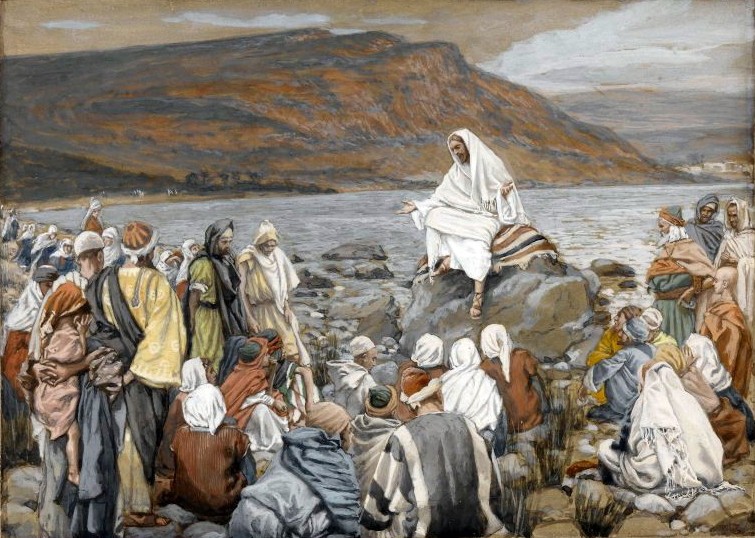Notice: Trying to access array offset on value of type bool in
/nas/content/live/brownpelican/wp-content/themes/betheme/functions/theme-functions.php on line
1279
Notice: Trying to access array offset on value of type bool in
/nas/content/live/brownpelican/wp-content/themes/betheme/functions/theme-functions.php on line
1284
Notice: Trying to access array offset on value of type bool in
/nas/content/live/brownpelican/wp-content/themes/betheme/functions/theme-functions.php on line
1306
Notice: Trying to access array offset on value of type bool in
/nas/content/live/brownpelican/wp-content/themes/betheme/functions/theme-functions.php on line
1307
Notice: Trying to access array offset on value of type bool in
/nas/content/live/brownpelican/wp-content/themes/betheme/functions/theme-functions.php on line
1308
Saint of the Day for June 1: St. Justin Martyr (c. 100 – 165)
June 1, 2018New Vatican Document Evaluates the World of Finance
June 1, 2018
“Have faith in God”
author Don Schwager – Scripture: Mark 11:11-26
11 And he entered Jerusalem, and went into the temple; and when he had looked round at everything, as it was already late, he went out to Bethany with the twelve. 12 On the following day, when they came from Bethany, he was hungry. 13 And seeing in the distance a fig tree in leaf, he went to see if he could find anything on it. When he came to it, he found nothing but leaves, for it was not the season for figs. 14 And he said to it, “May no one ever eat fruit from you again.” And his disciples heard it.
15 And they came to Jerusalem. And he entered the temple and began to drive out those who sold and those who bought in the temple, and he overturned the tables of the money-changers and the seats of those who sold pigeons; 16 and he would not allow any one to carry anything through the temple. 17 And he taught, and said to them, “Is it not written, `My house shall be called a house of prayer for all the nations’? But you have made it a den of robbers.” 18 And the chief priests and the scribes heard it and sought a way to destroy him; for they feared him, because all the multitude was astonished at his teaching.
19 And when evening came they went out of the city. 20 As they passed by in the morning, they saw the fig tree withered away to its roots. 21 And Peter remembered and said to him, “Master, look! The fig tree which you cursed has withered.” 22 And Jesus answered them, “Have faith in God. 23 Truly, I say to you, whoever says to this mountain, `Be taken up and cast into the sea,’ and does not doubt in his heart, but believes that what he says will come to pass, it will be done for him. 24 Therefore I tell you, whatever you ask in prayer, believe that you have received it, and it will be yours. 25 And whenever you stand praying, forgive, if you have anything against any one; so that your Father also who is in heaven may forgive you your trespasses. But if you do not forgive, neither will your Father who is in heaven forgive your trespasses”
Meditation: Why did Jesus curse a fig tree? Fig trees were a common and important source of food for the Jews. Bad figs or a decaying fig tree was linked with evil deeds and spiritual decay. The unfruitful fig tree symbolized the outcome of Israel’s unresponsiveness to the word of God. The prophets depicted the languishing fig tree as signifying the desolation and calamity of Israel due to her unfaithfulness to God (see Joel 1:7,12; Habakuk 3:17; and Jeremiah 8:13).
Faith must be nourished by the word of God
The history of Israel is one long preparation for the coming of the Promised One – the Messiah. But the promise is unfulfilled in those who reject Jesus through their unbelief. (See also Jesus’ parable of the barren fig tree in Luke 13:6-9). Jesus’ cursing of a fig tree is a prophetic action against the faithlessness of those who rejected his message. For faith to be fruitful and productive, it must be nourished with the word of God (2 Timothy 3:16; Colossians 3:16) and be rooted in love and obedience to the truth (Galatians 5:6,7)..
Jesus purifies his people to make them holy
Jesus’ cleansing of the temple was another prophetic action. In this incident we see Jesus’ startling and swift action in cleansing the temple of those who were using it to exploit the worshipers of God. The money changers took advantage of the poor and forced them to pay many times more than was right – in the house of God no less! Their robbery of the poor was not only dishonoring to God but unjust toward their neighbor. In justification for his audacious action Jesus quotes from the prophets Isaiah (56:7) and Jeremiah (7:11). His act of judgment aims to purify the worship of God’s people and to discipline their erring ways.
Pray with expectant faith in God’s power and mercy
After this incident Jesus exhorts his disciples to “have faith in God.” They are to pray with expectant faith for God’s will to be accomplished – no matter how difficult or challenging the situation may appear. The phrase “to remove mountains” was a common Jewish expression for removing difficulties. A wise teacher who could solve difficulties was called a “mountain remover.” If we pray with expectant faith God will give us the means to overcome difficulties and obstacles that stand in the way of accomplishing his will for our lives. If we want God to hear our prayers we must forgive those who wrong us as God has forgiven us. Do you pray with expectant faith?
“Lord Jesus, increase my faith and make my fruitful and effective in serving you and bringing you honor and glory in all that I do. Help me to be merciful and forgiving towards others just as you have been merciful and forgiving towards me.”
Psalm 96:10-13
10 Say among the nations, “The LORD reigns! Yea, the world is established, it shall never be moved; he will judge the peoples with equity.”
11 Let the heavens be glad, and let the earth rejoice; let the sea roar, and all that fills it;
12 let the field exult, and everything in it! Then shall all the trees of the wood sing for joy
13 before the LORD, for he comes, for he comes to judge the earth. He will judge the world with righteousness, and the peoples with his truth.
Daily Quote from the early church fathers: Attaining the fruit of mercy and goodness in the school of Christ, by Augustine of Hippo, 354-430 A.D.
“Some who witnessed Christ’s miracles did not understand what they meant, and how they spoke to those who knew they had special meaning. They wondered only at the miracles themselves. Others both marveled at the miracles, and attained some preliminary understanding of them. For this we must come to the school of Christ himself. Those fixed only upon the plain sense of Scripture tend to focus merely upon miracle for miracles’ sake. Hence they may prematurely conclude that Jesus himself was ignorant of the time of the year, something any ordinary farmer could discern. For it was not yet the season for the tree to bear fruit. Nevertheless, since he was hungry, he looked for fruit on the tree (Mark 11:13). Does this imply that Christ knew less than what every peasant could easily discern? Surely not. Wouldn’t you expect the maker of the fig tree to know what the ordinary orchard worker would know in a snap? So when he was hungry he looked for fruit on the tree, but he seemed to be looking for something more from this tree. He noted that the tree had no fruit, but was full of leaves. It was at that point that he cursed it, and it withered away. So what terrible thing had the poor tree done simply in not bearing fruit? Could the tree reasonably be faulted for its fruitlessness? No. But human beings who by their own free will decide not to bear fruit – that is a different matter. Those found wanting in accountability in this case are those who had the benefit of the law, which was meant to bear fruit, but they had no fruit to show for it. They had a full growth of leaves (the law), yet they bore no fruit (works of mercy).” (excerpt from SERMONS ON NEW TESTAMENT LESSONS 48.3.16)
Meditations may be freely reprinted for non-commercial use – please cite: copyright (c) 2018 Servants of the Word, source: www.dailyscripture.net, author Don Schwager
Scripture quotations from Common Bible: Revised Standard Version of the Bible, copyright 1973, and Ignatius Edition of the Revised Standard Version of the Bible, copyright 2006, by the Division of Christian Education of the National Council of the Churches of Christ in the United States of America. Used by permission. All rights reserved. Citation references for quotes from the writings of the early church fathers can be found here.






